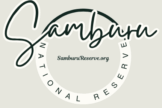A safari in Samburu National Reserve is an unforgettable adventure, but being prepared for health and safety concerns ensures a worry-free experience. The semi-arid climate, remote location, and proximity to wildlife present unique challenges, so it’s essential to take the right precautions.
This guide covers health risks, vaccinations, emergency contacts, and safety tips for game drives, food, water, and medical emergencies to ensure a safe safari.
1. Health Precautions Before Your Safari
✔ Recommended Vaccinations for Samburu
Before traveling to Samburu, check with your doctor about these recommended vaccines:
✔ Routine Vaccines – Tetanus, Hepatitis A & B, Typhoid, Measles, Polio.
✔ Yellow Fever – Not mandatory for Kenya unless arriving from an endemic country.
✔ Rabies (Optional) – If planning extended stays in rural areas.
✔ COVID-19 & Flu Shots – Recommended for extra protection.
📌 Book your vaccinations at least 4-6 weeks before travel to ensure immunity.
✔ Malaria Prevention
✔ Take anti-malaria medication as prescribed by your doctor.
✔ Use insect repellent with DEET (30%+).
✔ Wear long sleeves & pants in the evening.
✔ Sleep under a mosquito net (provided in most lodges).
✔ Avoid stagnant water areas where mosquitoes breed.
2. Food & Water Safety in Samburu
✔ Is It Safe to Drink Water in Samburu?
❌ Tap water is NOT safe to drink.
✔ Always drink bottled or purified water.
✔ Bring a water filter bottle if camping or staying in remote areas.
✔ Avoid ice cubes in drinks unless confirmed purified.
✔ Safe Eating Practices on Safari
✔ Eat at reputable lodges and camps with good hygiene standards.
✔ Avoid raw or unpeeled fruits & vegetables unless washed with clean water.
✔ Stick to well-cooked meats & avoid street food in nearby towns.
3. Staying Safe Around Wildlife
✔ Safari Game Drive Safety Tips
✔ Listen to your guide – They are trained to handle wildlife encounters.
✔ Stay inside the vehicle at all times unless permitted to exit.
✔ Do not feed or approach animals.
✔ Keep noise levels low to avoid disturbing wildlife.
✔ Use binoculars & zoom lenses instead of moving too close.
✔ Lodge & Campsite Wildlife Safety
✔ Do not walk alone at night – Always use a guide or security escort.
✔ Keep tent zippers closed to prevent animals from entering.
✔ Do not leave food in your tent, as it can attract wildlife.
✔ Check for scorpions or snakes before putting on shoes.
4. Sun & Heat Protection
✔ Temperatures in Samburu can reach 35°C (95°F) – Stay hydrated!
✔ Wear sunscreen (SPF 30+), a hat, and sunglasses.
✔ Drink at least 2-3 liters of water daily.
✔ Wear loose, breathable clothing.
✔ Rest in shaded areas during midday heat.
📌 Heatstroke Risk – If you feel dizzy, nauseous, or weak, rest immediately and drink water.
5. First Aid & Medical Emergencies
✔ Essential First Aid Kit for Safari
✔ Pain relievers (Ibuprofen, Paracetamol).
✔ Anti-diarrhea medication (Imodium, Oral Rehydration Salts).
✔ Motion sickness tablets (for bumpy game drives).
✔ Antihistamines for allergies.
✔ Wound care supplies (band-aids, antiseptic cream).
✔ Prescription medications & copies of prescriptions.
✔ What to Do in a Medical Emergency
1️⃣ Inform your guide or lodge staff immediately.
2️⃣ Use lodge first aid facilities for minor issues.
3️⃣ For serious emergencies, request evacuation to Nairobi.
4️⃣ Travel with AMREF Flying Doctors evacuation insurance.
📌 Nearest Medical Facilities:
✔ Isiolo County Referral Hospital (1.5 hrs from Samburu).
✔ Nanyuki Cottage Hospital (3 hrs from Samburu) – Best private hospital nearby.
✔ Nairobi Hospitals (6+ hrs by road or 1 hr by air).
6. Safety in Local Towns & Communities
✔ Respect Samburu culture – Dress modestly and ask permission before taking photos.
✔ Avoid walking alone in Archer’s Post at night.
✔ Do not display valuables openly (phones, jewelry, cash).
✔ Use cash for small purchases, but keep larger amounts in a money belt.
✔ Bargain respectfully when shopping at local markets.
7. Travel Insurance & Emergency Evacuation
✔ Get comprehensive travel insurance covering:
- Medical emergencies & evacuations.
- Trip cancellations & lost luggage.
- Accidents & wildlife encounters.
✔ Enroll with AMREF Flying Doctors for quick medical evacuation to Nairobi if needed.
Final Health & Safety Checklist for Samburu Safari
✅ Vaccinations & malaria meds ready.
✅ Sunscreen, hat, sunglasses packed.
✅ Water bottle & hydration plan.
✅ First aid kit & essential medications.
✅ Listening to guide instructions for wildlife safety.
✅ Lodge & campsite safety precautions followed.
✅ Emergency contacts & travel insurance in place.
By following these expert health and safety tips, you’ll enjoy a stress-free, unforgettable safari experience in Samburu!
